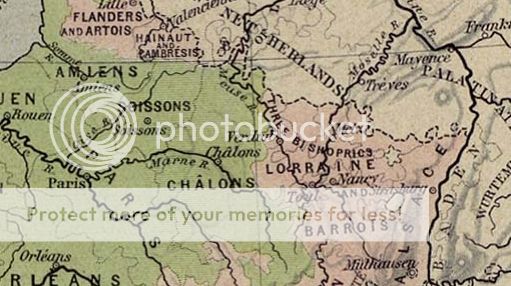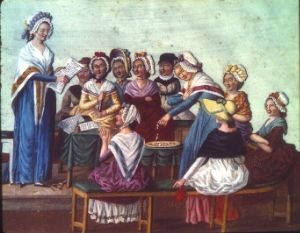Marie Caroline Sophie Pontbriand On Women's Roles in the War
The Republic is threatened! Imperialists and their German master's threaten to destroy the nation we've all built. The nation of liberty, of equality and of enlightenment! The Monarchist dogs look to oppress women, end democracy and return France to the feudal system of the middle ages. Our men go to fight and die in the fields and cities for our nation, but we can help to! Women need to do their part in helping defend our France! We, as females, can help build barricades, donate what we have to our soldiers and take up arms against the enemy. It is time to turn our arms we use to fight our government to use them against the invaders! Our help is essential to defending the Revolution, which when we marched on Versailles helped begin. If we want equality we must put in our equal share of help defending our nation! Join our soldiers! Fight along side them! Nurse them in hospitals! Give them extra goods that could help the effort against the Monarchists! The female sex is equal, and we will do our equal part in defending the Republic! This nation needs you, women can help! Onwards for Liberty! For the Revolution!







